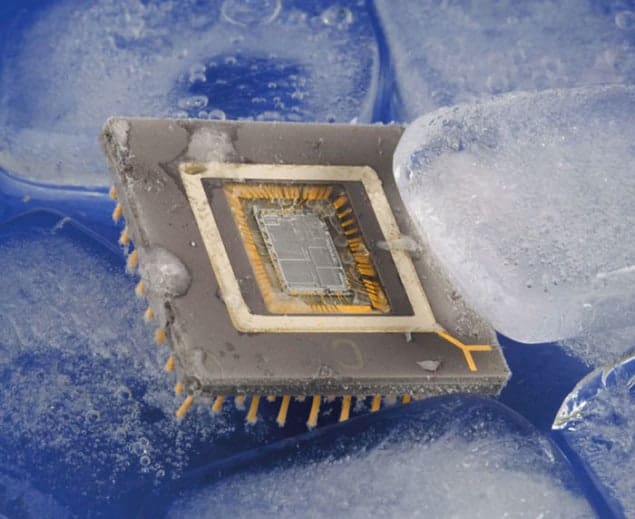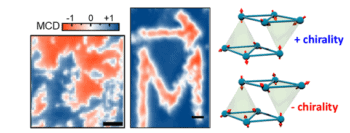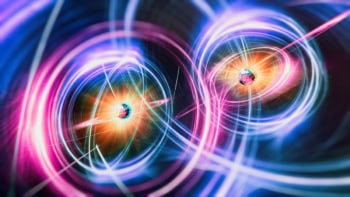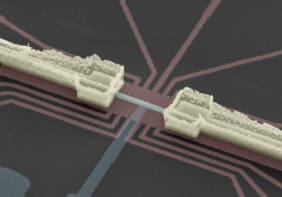
Erasure of data – the blanking of memory so that it can be used again – is a fundamental operation any computer must perform. In today’s computers, erasure generates heat, which not only wastes energy, but also causes problems for engineers trying to make smaller or more powerful computers, since the heat could damage the circuitry. But now theoretical physicists claim that, in the world of quantum computing, the act of erasing data might actually cool a computer.
A classical computer generates heat when erasing data because of entropy – a central concept in both thermodynamics and information theory that describes the amount of unknown information in a system. The entropy of the universe can never decrease; so if you reduce the entropy of a memory chip, then you inevitably increase the entropy of its surroundings, which causes them to heat up. In classical computing, data are stored as a long string of bits, which can read either one or zero. To erase these data, all the bits have to be set to zero, which means putting the memory into a zero-entropy state. Since this action normally means reducing the entropy, heat will be generated.
In information theory, however, the entropy of a particular set of data is conditional on how much the observer knows about the data. For an observer who has total knowledge of the data, the entropy is, by definition, zero. It is therefore theoretically possible for that observer to erase the data without decreasing the entropy and without generating any heat.
Breaking entanglement
The current research by Renato Renner and colleagues at ETH Zurich in Switzerland and the National University of Singapore extends this reasoning to quantum computation. Two qubits (quantum bits) can be in a single “entangled” quantum state in which, while nothing is known about either qubit individually, all information about the entangled state is known with certainty. If a computer-memory qubit is in an entangled state with a qubit of data to be erased, the conditional entropy of these data is in fact negative, since the computer knows all the information not only about the data but about itself. It is a bit like a husband gazing into his wife’s eyes and knowing exactly what is going on in her head as well as his own.
But if the entanglement is broken, the computer memory no longer knows any information about either. It can now erase the data, putting them into a zero-entropy state, and still have increased the overall entropy. This means that, in theory, when data are erased from a quantum computer, heat could actually be removed from the surroundings, although this could never be more than the heat generated by creating the data initially.
The research is simply intended to explore the thermodynamic implications of the concept of negative conditional entropy, not to provide a blueprint for a quantum computer. Nevertheless, given that keeping the system extremely cold is likely to prove central to preserving the fragile quantum states in any functional quantum computer, the researchers hope their work may prove helpful to more applied research. “The kind of control needed may be a few years away, but when we reach it, our approach could make computations more efficient,” says Lídia del Rio, a member of the ETH Zurich team.
Information theorist Charles H Bennett of IBM Research in New York, one of the original architects of zero-entropy erasure, is interested but sceptical. “The idea of conditional entropy was developed in the fields of cryptography and information transmission, while this work is trying to apply it to the thermodynamic cost of computation. It’s not clear how helpful it will be in that field but it’s a good scientific endeavour to try to apply it there.”
The research is published in Nature.



